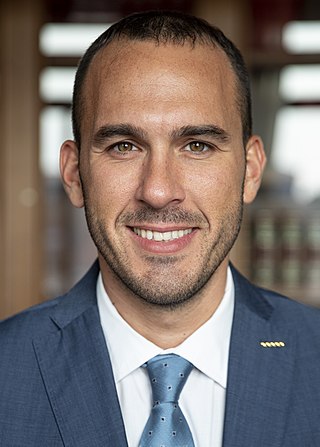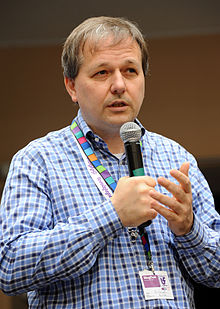India's telecommunication network is the second largest in the world by number of telephone users with over 1.19 billion subscribers as of September 2024. It has one of the lowest call tariffs in the world enabled by multiple large-scale telecom operators and the ensuant hyper-competition between them. India has the world's second largest Internet user-base with over 949.21 million broadband internet subscribers as of September 2024.
Modern telecommunications in Thailand began in 1875 with the deployment of the first telegraph service. Historically, the development of telecommunication networks in Thailand were in the hands of the public sector. Government organisations were established to provide telegraph, telephone, radio, and television services, and other government agencies, especially the military, still control a large estate of radio and television spectra. Private telecommunication operators initially acquired concession agreements with state enterprises. For mobile phone services, all the concessions have been amended by successive government to last 25 years have gradually ended in 2015. For other services, the concession terms and conditions vary, ranging from one to fifteen years. Nearly all of the concessions are build-operate-transfer (BTO) contracts. The private investor has to build all the required facilities and transfer them to the state before they can operate or offer services to public.

TIM S.p.A. is an Italian telecommunications company with headquarters in Rome, Milan, and Naples, which provides fixed telephony and DSL data services.

Network neutrality, often referred to as net neutrality, is the principle that Internet service providers (ISPs) must treat all Internet communications equally, offering users and online content providers consistent transfer rates regardless of content, website, platform, application, type of equipment, source address, destination address, or method of communication. Net neutrality was advocated for in the 1990s by the presidential administration of Bill Clinton in the United States. Clinton's signing of the Telecommunications Act of 1996, an amendment to the Communications Act of 1934, set a worldwide example for net neutrality laws and the regulation of ISPs.
In the United States, net neutrality—the principle that Internet service providers (ISPs) should make no distinctions between different kinds of content on the Internet, and to not discriminate based on such distinctions—has been an issue of contention between end-users and ISPs since the 1990s. With net neutrality, ISPs may not intentionally block, slow down, or charge different rates for specific online content. Without net neutrality, ISPs may prioritize certain types of traffic, meter others, or potentially block specific types of content, while charging consumers different rates for that content.
The Telecoms Package was the review of the European Union Telecommunications Framework from 2007 – 2009. The objective of the review was to update the EU Telecoms Framework of 2002 and to create a common set of regulations for the telecoms industry across all 27 EU member states. The review consisted of a package of directives addressing the regulation of service provision, access, interconnection, users' contractual rights and users' privacy, as well as a regulation creating a new European regulatory body (BEREC).
DDL Intercettazioni or the Wiretapping Bill is a piece of legislation put periodically before the Italian Parliament, but never passed.

Marta Grande is an Italian politician. As a member of the Five Star Movement, she has been the chair of the Committee on Foreign and European Union Affairs of Italy's Chamber of Deputies from 2018 to 2022. She is also the youngest female MP in the 17th legislature.

Identity and Action is a conservative political party in Italy, whose membership stretches from Christian democracy to liberal conservatism.

Giovanni Fava is an Italian politician of Lega Nord, MP in the Italian Chamber of Deputies from 28 April 2006 to 4 June 2013 and Mayor of Pomponesco for two consecutive full terms from 22 November 1993 to 13 May 2001.
The Net Neutrality Regulation 2015 is a Regulation in EU law where article 3(3) lays down measures concerning open internet access.
Device neutrality law states that the users have the right of non-discrimination of the services and apps they use, based on platform control by hardware companies.
Net neutrality is the principle that governments should mandate Internet service providers to treat all data on the Internet the same, and not discriminate or charge differently by user, content, website, platform, application, type of attached equipment, or method of communication. For instance, under these principles, internet service providers are unable to intentionally block, slow down or charge money for specific websites and online content.

Niccolò Invidia, is an Italian politician and member of the Chamber of Deputies.

Manlio Di Stefano is an Italian politician.

Abruzzo is one of the 29 constituencies represented in the Chamber of Deputies, the lower house of the Italian parliament. The constituency currently elects 14 deputies. Its boundaries correspond to those of the Italian region of Abruzzo. The electoral system uses a parallel voting system, which act as a mixed system, with 37% of seats allocated using a first-past-the-post electoral system and 61% using a proportional method, with one round of voting.








